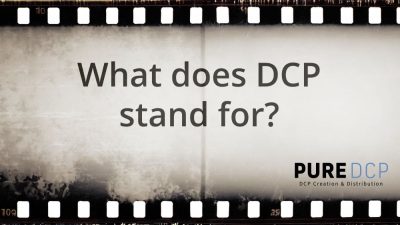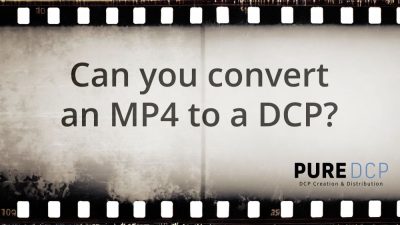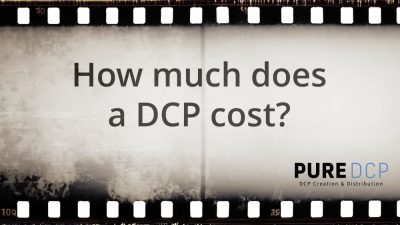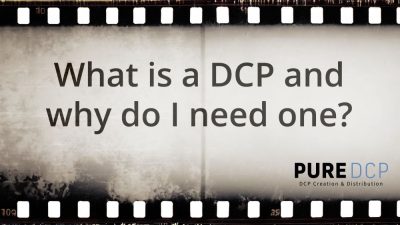In the world of cinema, there’s a term that often pops up when discussing digital film distribution: DCP.
But what exactly is a DCP, and why is it so important in the world of filmmaking?
In this article, we’ll explore the complexities of DCP to clarify this essential aspect of contemporary film distribution.
What is a DCP?
A Digital Cinema Package (DCP) is a collection of digital files containing all the essential elements required for the digital projection of a film in theaters. These elements typically include high-quality video, audio tracks, subtitles, and metadata. DCPs ensure consistent playback quality across various theater setups, allowing filmmakers to present their work exactly as intended on the big screen.
Understanding DCP
DCP stands for Digital Cinema Package. Essentially, it’s a specialized digital file format used for storing and delivering digital cinema content. Think of it as the digital equivalent of a traditional 35mm film print. DCPs contain all the elements necessary for projecting a movie in digital cinemas, including audio, video, subtitles, and metadata.
Components of a DCP
A typical DCP consists of several components:
Video: The main feature film encoded in a high-quality digital video format, usually in resolutions like 2K or 4K, ensuring crisp visuals on the big screen.
Audio: Multi-channel audio tracks, often in formats like PCM or Dolby Digital, providing immersive sound experiences in cinemas.
Subtitles: Textual overlays synchronized with the video for displaying translations or captions during the screening.
Metadata: Essential information about the content, such as title, aspect ratio, frame rate, encryption keys (for secure distribution), and more.
Why DCP Matters
DCP has become the standard format for digital cinema projection for several reasons:
Quality: DCP ensures high-quality playback on cinema screens, preserving the filmmaker’s vision with precise image and sound reproduction.
Compatibility: DCP is compatible with most digital cinema projectors worldwide, offering a standardized format for seamless playback.
Security: DCP supports encryption and other security measures, safeguarding against piracy and unauthorized distribution.
Flexibility: DCP allows for easy distribution and sharing of digital cinema content, streamlining the process for filmmakers, distributors, and exhibitors.
Creating a DCP
Creating a DCP involves a meticulous process known as digital cinema mastering. This process typically includes:
Video and Audio Encoding: Converting the film’s video and audio elements into formats suitable for digital cinema projection.
Subtitling and Captioning: Adding subtitles or captions as required by the film’s language and accessibility needs.
Quality Control: Ensuring that the DCP meets industry standards for visual and audio quality, compatibility, and security.
Why Do You Need a DCP?
1. Industry Standard:
DCPs have become the industry standard for theatrical distribution, replacing traditional film prints. The digital format offers numerous advantages, including higher image quality, more reliable playback, and easier distribution to theaters worldwide.
2. Quality Assurance:
With DCPs, filmmakers can rest assured that their work will be presented to audiences with the utmost quality and fidelity. By encoding films into standardized digital formats, DCPs eliminate the variability and degradation associated with analog film prints, ensuring consistent viewing experiences for audiences.
3. Global Distribution:
DCPs enable filmmakers to distribute their work to theaters around the world efficiently. Unlike physical film prints, which require expensive shipping and handling, DCPs can be delivered electronically, reducing costs and logistical complexities.
4. Compatibility:
DCPs are designed to be compatible with a wide range of digital cinema projectors and playback systems, ensuring seamless playback in theaters of all sizes and configurations. This compatibility allows filmmakers to reach diverse audiences without worrying about technical compatibility issues.
5. Future-Proofing:
In an era where technology is constantly evolving, DCPs offer a future-proof solution for preserving and presenting films. By digitizing content into standardized formats, filmmakers can ensure that their work remains accessible and playable for years to come, even as technology advances.
Conclusion
A DCP (Digital Cinema Package) is a specialized digital file format designed for storing and delivering digital cinema content.
It encapsulates everything needed for projecting a movie in digital cinemas, including video, audio, subtitles, and metadata.
As the standard format for digital cinema projection, DCP plays a crucial role in modern film distribution, ensuring high-quality playback, compatibility, security, and flexibility.
Understanding the intricacies of DCP is essential for filmmakers, distributors, and exhibitors navigating the landscape of digital cinema.





